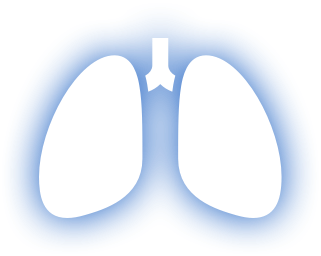What is it?
Sarcoidosis is a disorder of the immunesytem. In patients with sarcoidosis there is an exagerated immune response. This causes a clustering of certain inflammatory cells, called granulomas. These can affect every organ system in the human body. They can disrupt the normal function of the organ and can cause scarring or fibrosis on the long term. The cause of sarcoidosis is currently still unknown. We think that it is caused by an exagerated immune response to so far unidentified stimulants in patients who are vulnurable. In the majority of the sarcoidosis patients the granulomas occur in the lungs - about 9 in 10 patients with the disease - and this is called lungsarcoidosis. Due to the presence of granulomas in the lungs shortness of breath can occur. Other complaints can be chestpain, a cough or a feeling of thightness of the chest. The way the disease manifests itself differs extensively between patients.
How do I know I have it?
In most cases to make the diagnosis and to exclude other diagnoses ancillary investigations will be performed. This mainly consists of a chest X-ray, laboratory investigations and a lungfunction tests. Frequently, additional scans will be performed. Examples include a CT-scan of the lungs and endoscopic investigations (bronchoscopy). With the latter we try to obtain a piece of lung- or lymphnode tissue in order to confirm the presence of granulomas under the microscope and to diagnose someone with certainty. At the top of this webpage in blue you can find an example of these granulomas. When your doctor suspects that multiple organ systems might be involved in the disease, he or she will refer you to other specialists.
Can it be treated?
A treatment for lungsarcoidosis is not necessary in all cases. Depending on the extent of the lunginvolvement and/or involvement of other organs, your doctor can decide to give medication to reduce the exagerated immune reaction, for example prednisolone. This desicion will be made on the basis of ancillary investigations, like the lungfunction tests. Prednisolone is a quickly acting hormone and can be given as pulse therapy via an intravenous drip or with a tablet, depending on the severity of the disease manifestation. Sometimes a combination of both is necessary to quickly and effectively suppress the disease. When the disease cannot be brought to a halt despite treatment with prednisolone, or when prolonged treatment is necessary, a second type of medication can be added that acts on the immune system differently, like methotrexate or azathioprine. These are agents that are also being used in other disorders of the immunesystem, for example rheumatoid arthritis. When sarcoidosis proves difficult to treat despite aforementioned medication, your doctors can choose to treat you with specific powerfull antibodies, like infliximab.
The disease severity differs extensively from patient to patient. Some patients do not need any medication, while others need a lot of different types of medication. Furthermore, it can be a difficult diagnosis to make. Currently, we are conducting multiple scientific research projects to improve the diagostic process and treatment of sarcoidosis. You can find more information below, when you click on the button 'scientific research'.
We are a tertiary referral center for patients with sarcoidosis. Healthcare for patients with sarcoidosis can be complex. Our opinion is that because the disease is relatively rare, care for these patients with severe manifestations of the disease should be performed preferably in a few specialised hospitals. We want to improve Healthcare for these patients. Part of this is a specialist outpatient clinic for sarcoidosis patients with a multidisciplinary approach. Additionally we have started various scientific researchprojects, aimed at improving the diagnostic process and treatment of this disease. Below you can find more information concerning the pulmonary medicine department, who we are, what kind of research we are conducting and how you can refer patients to us.
